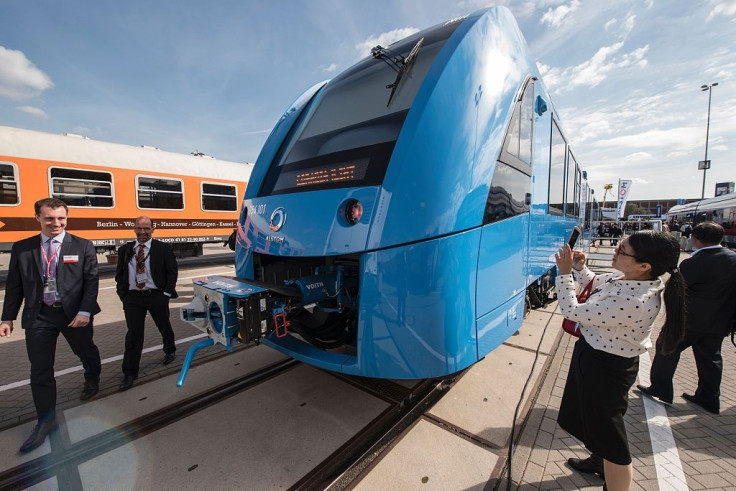World's first hydrogen-powered passenger trains to run on German tracks from December 2021
The country's Lower Saxony state has signed an agreement with Alstom for the incorporation of as many as 14 such trains.

Germany plans to revolutionise the country's public transport with the introduction of world's first hydrogen-powered passenger trains. These are zero-emission trains that run silently on hydrogen fuel cell and emit only steam and condensed water.
According to a Reuters report, the country's Lower Saxony state has signed an agreement with French engineering major Alstom for the incorporation of as many as 14 such trains in 2021.
The low-floor passenger train, dubbed Coradia iLint, will have a maximum range of up to 1,000km and a top speed of 140kmph. The vehicle uses a hydrogen fuel cell, which produces electric power for the traction.
The agreement was signed by Lower Saxony's local transport authority LNVG, Alstom, and the Linde Group – the German chemical company assigned with the task of prepping hydrogen filling stations for the upcoming trains – on Thursday (9 November).
"This day represents a real breakthrough in rail transportation and a big step change towards a clean mobility system," said Gian Luca Erbacci, Alstom's Senior VP for Europe. "For the first time worldwide, a hydrogen-fuelled passenger regional train will replace diesel trains, generating zero-emission with the same performance as a regular regional train and up to 1,000 km autonomy."
The new vehicles, which will replace diesel trains, will be operating on routes between Cuxhaven, Bremerhaven, Bremervoerde, and Buxtehude from December 2021.
Coradia iLint first ran during a four-week test in March and is slated to go passenger test runs in early 2018. That time, the vehicle generated traction using hydrogen produced from an industrial process. However, now Alstom plans to use hydrogen from several wind turbines in the state, an Associated Press report said.
"From now on there will be a real alternative to diesel trains in non-electrified rail transport," said Olaf Lies, economy and transport minister of Lower Saxony.
"Hydrogen and fuel cells are an ideal combination for climate protection as well as for the energy and transport revolution. They allow the storage of energy and emission-free travelling on rail."





















